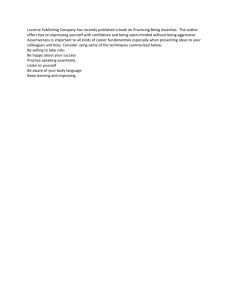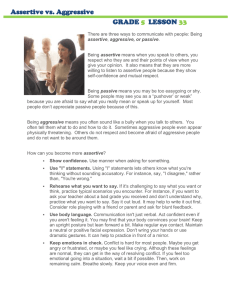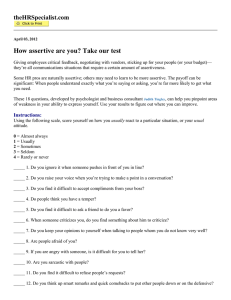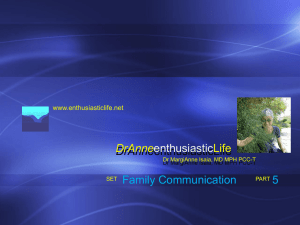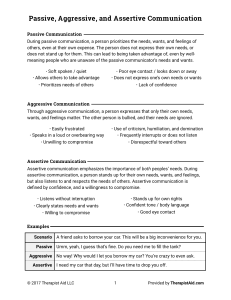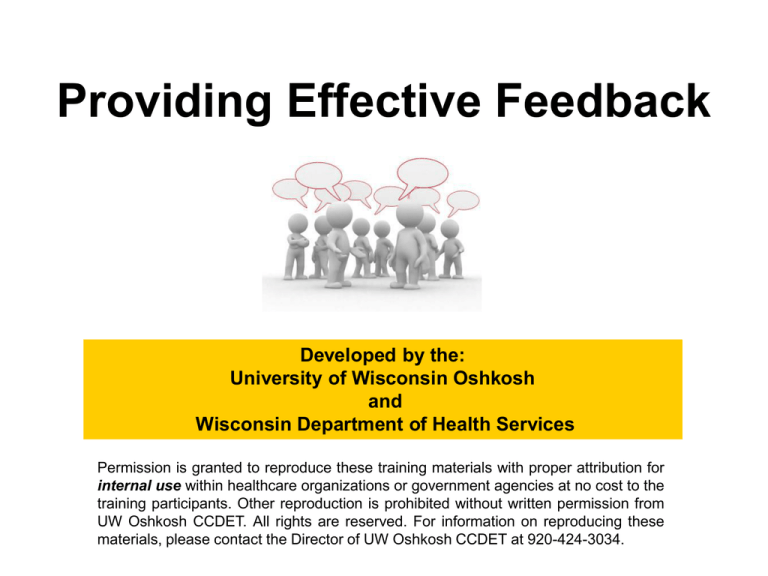
Providing Effective Feedback
Developed by the:
University of Wisconsin Oshkosh
and
Wisconsin Department of Health Services
Permission is granted to reproduce these training materials with proper attribution for
internal use within healthcare organizations or government agencies at no cost to the
training participants. Other reproduction is prohibited without written permission from
UW Oshkosh CCDET. All rights are reserved. For information on reproducing these
materials, please contact the Director of UW Oshkosh CCDET at 920-424-3034.
Learning Points
•
•
•
•
Ask the Right Questions
Provide Effective Feedback
Communicate Observations Timely
Communicate Assertively
Providing Effective
Feedback
• Ask open-ended questions and listen
actively
• Communicate observations
• Practice positive reinforcement
• Communicate responsibilities and
expectations
• Establish goals and follow up
Asking Questions
• Why Ask Questions?
• Tips for Answering Questions
• Listening
Communicating
Observations
•
•
•
•
•
•
•
Never let good work go unnoticed
Avoid being judgmental
Be specific, objective and non-threatening
Be aware of your body language
Avoid sending someone else to do your job
Avoid using “good news/ bad news”
Do not use sarcasm, insults, or accusations
Activity: Providing Feedback
•
•
•
Why is it important to provide feedback
to Michael?
What concerns do you have about the
interaction?
How might you open the conversation
with Michael?
Communicating
Feedback Effectively
• Assertiveness is about standing up for
yourself, but also about respecting the
opinions and needs of others.
• When we communicate assertively, we are
clear about our opinions and wishes, but
we are also open to others’.
Passive, Aggressive, Assertive
Passive
Passive/Aggressive
Aggressive
Assertive
Tips for Assertive
Communication
•
•
•
•
Making Assertive Statements
Do’s and Don’ts
Using Assertive Body Language
Techniques to Avoid
Activity:
One Conversation,
Three Styles
•Video Clips or Script Reading
•Discussion Questions
Activity: Why is
Assertiveness Important?
• Reasons for being assertive rather than
passive or aggressive?
• How does assertive communication result
in better care for clients or residents?
Learning Points Review
•
•
•
•
Ask the Right Questions
Provide Effective Feedback
Communicate Observations Timely
Communicate Assertively

